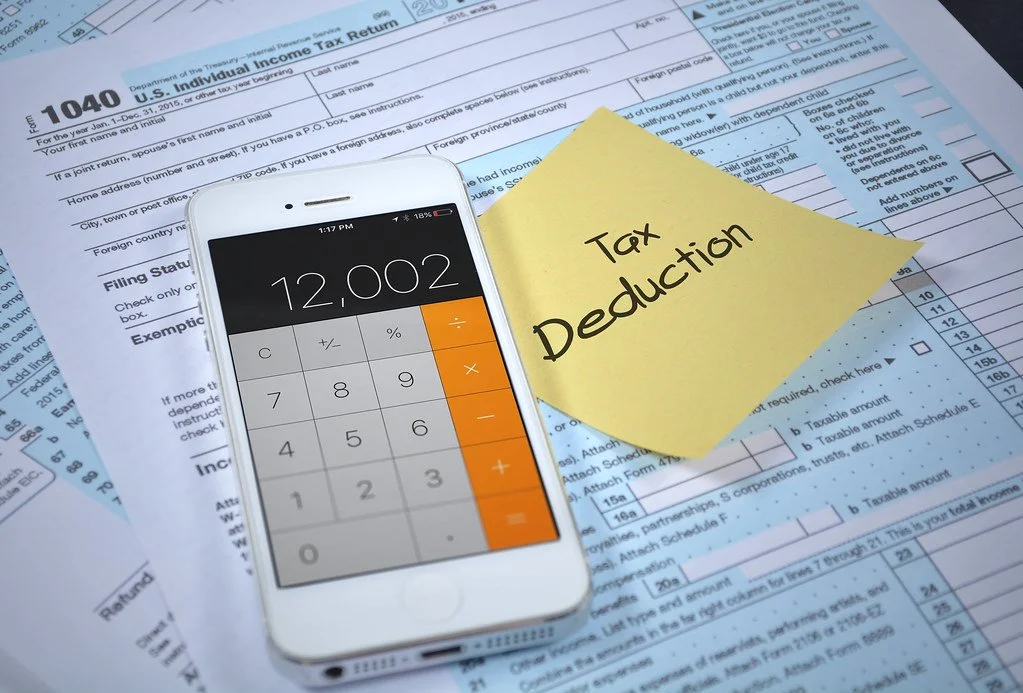
The Clergy Tax Deduction That Survived TCJA (And Most Pastors Don't Know About)
If you've been paying more SECA tax than necessary simply because you didn't know this option existed, you're not alone. Most pastors don't know. Many CPAs don't know. But now you do.

Enhanced PTC Expiration: What Pastors Must Know About Health Insurance in 2026
The Enhanced Premium Tax Credits that made ACA marketplace plans affordable for millions expired on December 31, 2025, triggering average premium increases of 114% KFF for subsidized enrollees. However, pastors have a significant but often overlooked advantage: clergy housing allowance is completely excluded from MAGI for ACA subsidy calculations, potentially keeping many pastors eligible for substantial credits even under the reverted rules.
This creates a critical planning opportunity. While a pastor earning $70,000 in total compensation might appear ineligible for subsidies, the housing allowance exclusion can reduce their ACA-countable income to levels that qualify for significant assistance—a benefit that most insurance brokers unfamiliar with clergy tax rules frequently miss.

Why You Need a Sabbatical—And How to Actually Afford One
Here's a sobering question: When did you last take more than two consecutive weeks completely away from ministry?
If you're like many pastors I talk with, the answer is "never"—or at least "not in a very long time." And yet, you probably feel guilty for even considering it. After all, there's always another sermon to write, another family in crisis, another board meeting demanding your attention. The Kingdom has needs.
But here's what the research tells us—and it's sobering:

Everyone's Doing Roth Conversions—Should Pastors?
The advice pastors typically hear goes something like this: "Your housing allowance keeps you in lower tax brackets, which makes Roth conversions even more attractive. Pay low taxes now, pay no taxes later!"
It's good advice. And it's not wrong.
But it's incomplete.
There's actually something better than paying low taxes now and no taxes later. What if I told you there's a way to pay no taxes now AND no taxes later?
Welcome to what I call the "Super-Roth"—and it's a retirement strategy only pastors have access to.

16 Questions That Reveal If Your Tax Preparer Actually Understands Pastoral Taxes
You're essentially flying a specialized aircraft in a world full of people trained to drive cars.
That's the best analogy I can come up with for what it's like to be a pastor looking for competent tax help. Sure, CPAs and tax preparers both deal with numbers and government forms—just like cars and airplanes both have engines and get you from point A to point B. But the operating principles? Fundamentally different.
And here's the uncomfortable truth most pastors discover the hard way: that CPA credential on the wall doesn't guarantee they understand your unique tax situation. In fact, I'd argue it often creates a false sense of security.

The $30,000 Question: What Pastoral Turnover Really Costs Your Church
Your next pastoral transition will likely cost your church between $30,000 and $100,000. What if you could prevent AND mitigate it for ~$400 a month?

Reversing a $1,500 Tax Disadvantage: Two Ways Churches Can Tip the Scales for Their Pastors
Every tax season, pastors across America unknowingly write checks for ~$1,563 more than they should. Not because they filed incorrectly. Not because they missed deductions. But because of an obscure tax classification that most church boards don't even know exists.
Today, I'm going to show you exactly how to eliminate this penalty—and perhaps even turn it into a tax advantage.

The Four-Bucket System: Your Financial Dashboard for Bivocational Ministry
If you're a bivocational pastor, you're essentially running a small business while shepherding a flock, often while holding down another job. You're juggling income streams that would make a CPA's head spin: W-2 from your church (with that pesky housing allowance), W-2 from your secular job (thank God for normal withholding!), 1099s from weddings and funerals, honorariums that came as checks or cash, and ministry expenses that may or may not be deductible depending on which income source they relate to.
But what if I told you that four simple "buckets" could transform this chaos into clarity?

The Phantom Mortgage: How to Build Equity When You Live in a Parsonage
I actually wish I lived in a parsonage. The wealth-building opportunities available to parsonage pastors are so powerful that they've made me reconsider everything I thought I knew about pastoral financial planning.

The Definitive Guide to Determining Fair Rental Value
It's Fall—what a wonderful time to be alive! The air is crisper, the leaves are turning gorgeous shades of amber and gold, and the intoxicating aroma of pumpkin spice wafts from every coffee shop. But if you're a pastor, autumn brings another seasonal tradition that's somewhat less Instagram-worthy.
What's that, you ask?
Housing allowance review season, of course!

That Salary Reduction Tithing "Deal" With Your Church? The IRS Says No
Here's what the IRS says (minus of all the legal jargon): If your church board authorizes you to receive $50,000, then you owe taxes on $50,000. Period. Full stop. End of discussion.
It doesn't matter if you "voluntarily" refuse part of it. It doesn't matter if you never touch the money. It doesn't matter how creatively you structure the arrangement.

You Opted Out of Social Security. Now What?
Let me guess: You signed Form 4361 years ago. Maybe it was right out of seminary, when money was tight and everyone was doing it. Maybe it was because you genuinely believed you could beat the system with smart investing. Or maybe — and I see this most often — it was because you simply couldn't afford to pay your bills any other way.
Whatever your reason, that decision is behind you now. Form 4361 is permanent and irrevocable. You can't go back.
So here's the question that keeps you up at night: Did I just mortgage my family's future?

Should You Refinance Your Mortgage as a Pastor?
Are you accidentally paying your bank thousands in interest just to save a few hundred in taxes?

The Tax Mistakes Costing Pastors Thousands (And How to Catch Them Before Filing)
Your tax situation as a pastor is uniquely complex. You're treated as an employee for income tax but self-employed for Social Security and Medicare. CPA and Enrolled Agent education covers clergy taxation only in passing, if at all. Many tax mistakes actually start upstream with well-meaning but uninformed church staff who don't understand the special requirements for pastoral compensation. Popular tax programs assume everyone fits standard categories and often mishandle housing allowances, SECA calculations, and ministerial income reporting.
The result? You're flying a specialized aircraft in a world full of people trained to drive cars.

How to Ruin a Pastor's Finances: 7 Pieces of "Expert" Advice That Sound Smart But Could Cost You Thousands
Want to know why specializing in pastoral finances is both a blessing and a curse? The blessing: helping those who serve selflessly. The curse: watching well-meaning advisors give advice that works for everyone else but could ruin a pastor's financial future. Here are 7 common recommendations that sound smart but could cost ministry families thousands.

Stop Feeling Guilty About Money: The 5-10-15 Rule Every Pastor Needs
You're not crazy for feeling trapped in a no-win situation. The stigma placed on pastors around money isn't just unfair—it's unbiblical.
The problem isn't that you want financial security. The problem is that most financial advice is designed for people with straightforward W-2 jobs, predictable income, and standard benefits packages. You need a framework designed specifically for the unique complexities of pastoral finances.
That's where the 5-10-15 Rule comes in.

Minister SECA Tax Reduction Guide
Ministers face a unique tax burden that most employees don't: paying both the employee and employer portions of Social Security and Medicare taxes through the Self-Employment Contributions Act (SECA). At 15.3% on all ministerial income—including that precious housing allowance—this hits hard. But here's the good news: three proven strategies can legally slash your SECA tax bill by thousands annually. These strategies aren't just theoretical tax tricks—they're IRS-approved methods that ministry tax specialists have refined over decades.

5 Housing Allowance Mistakes That Cost Pastors Thousands (And How to Fix Them Before April)
The housing allowance is often a pastor's largest tax benefit, yet it's also the source of the most expensive mistakes I see. The same costly errors keep showing up again and again—mistakes that can easily cost you thousands of dollars annually.
The good news? Every single one of these mistakes is completely preventable once you know what to look for.
